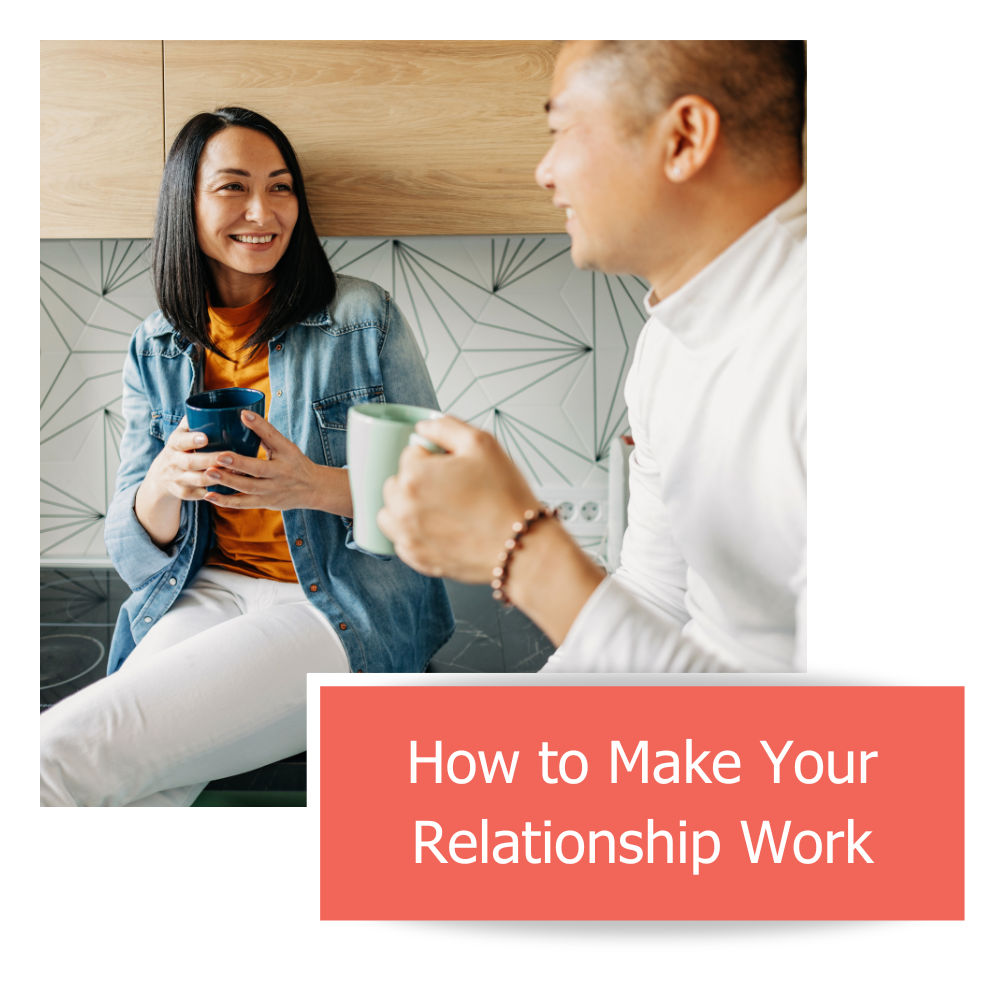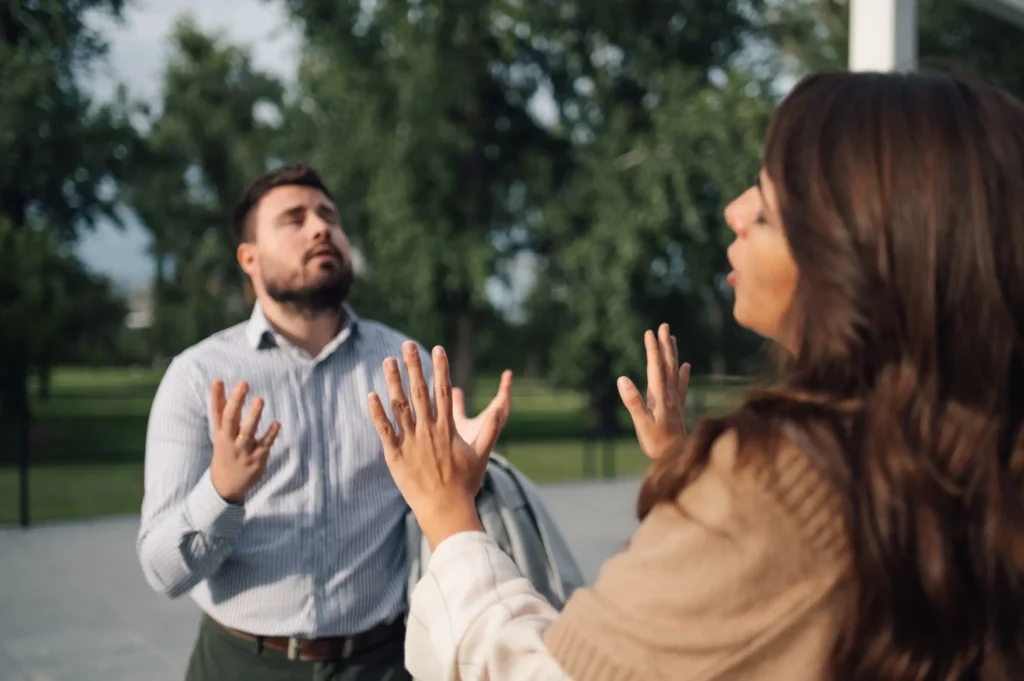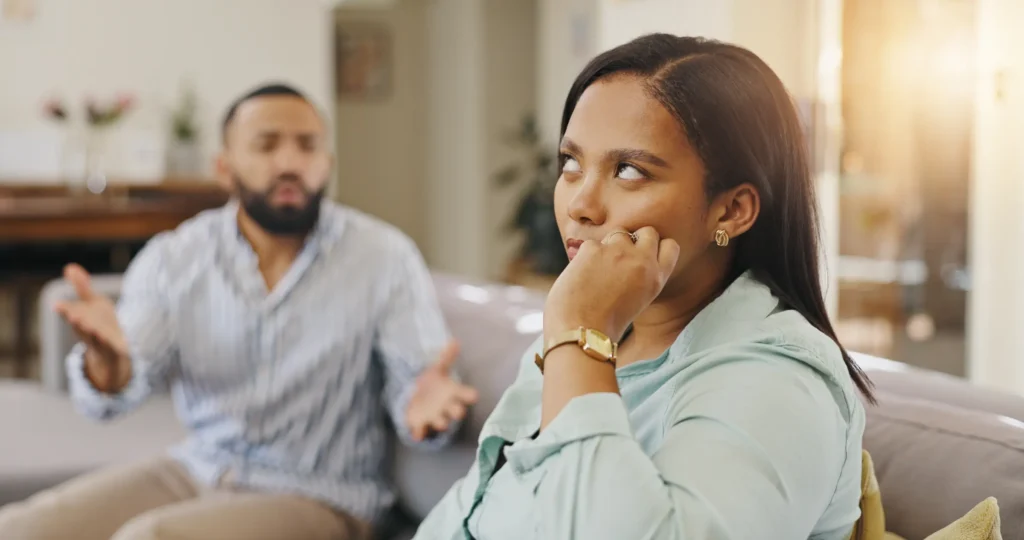“Giulio, did you take your sister’s cookie?”
I watch as the look on the two pint-sized faces cycles from affront to indignation to anger to something I can only describe as steely-eyed determination. I brace myself. His expression matches that of Mel Gibson, face full of Scottish war paint, charging toward the enemy screaming, “Freedom!” Giulio is likewise ready to defend his position to the death.
“It’s not my fault! You don’t know what happened! Why do you always pick on me? It’s HER fault. I didn’t do ANYTHING wrong!”
I’m only partly successful at keeping a neutral tone (the chuckles are aching to escape) when I ask, “Did you play any part in this? Remember, we are all responsible for our words and our hands, no matter how anyone else behaves.”
This was 45 years ago. Suffice to say that eventually, both kids got a chance to tell their side of the story, an apology was mumbled, and we talked a lot about blaming others versus taking responsibility. I really earned my buck an hour that day.
I remember that babysitting gig right now as I observe a couple on my couch. The woman speaking is not four years old, but she is acting almost identically to Giulio—right down to the “It’s not my fault” and the “I didn’t do anything wrong.”
Then it hits me. Mediating the great cookie debacle was the beginning of my lifelong fascination with helping people learn to fight fair.
The Damage of Defensiveness
As you will see in this video, many people have a tendency to feel defensive when their partner points out something they don’t like or don’t agree with. And when defensiveness ambushes, it’s easy to fight dirty, not fair.
Maybe you haven’t stolen your sweetheart’s cookie lately, but do you recognize yourself in that affronted little boy? Do you sometimes feel unheard or blamed by your partner or that your experience isn’t validated? Do you feel that you are under attack and must defend yourself from extraordinary unfairness?
I’ll bet you do. The question is, what do you do next?
Perhaps, like the patient on my couch, you scrunch your face and deflect responsibility like an angry petulant child. If so, I have one thing to say to you.
Grow up already! Take some darn responsibility! Maybe it IS partly your fault!
Now, hold on. If you don’t like what I just said, and you’re feeling triggered and preparing to attack, don’t blame me. It’s not my fault. I’m just the messenger.
Oh, wait, sorry. My bad. I got defensive there.
Let me first take a breath and then take some responsibility. Yes, I used a humorous story to illustrate something that is not funny—a defensive communication style is destructive and painful. Yes, I can see how you may have felt like I was insulting you by implying you are immature and need to act your age. I apologize. Can we try again?
Because I am here to help. And this is a serious topic.
If unchecked, defensiveness is one of the Four Horsemen of the Apocalypse—the predictors of divorce. So we all need to reduce our defensiveness and do a better job at seeing our partner’s point of view, while maturely and kindly helping our sweetheart to understand ours.
Tools to Dissolve Defensiveness
- Let go of being right. As you see in the video above, one of the tools I teach my couples is a perspective-taking technique I call the other side of the clock. I encourage you to watch the demonstration and then try it out yourself. After all, your partner is not wrong, they are just different.
- Change your physiology. Break the pattern of defensive fighting by shutting up. Instead of continuing to speak, do some jumping jacks or share a three-breath hug. Activate your parasympathetic nervous system, calm down, and try to see your mate for who they truly are—your ally, not your enemy.
- Choose a code word or gesture that means “we are getting off track, let’s begin again.” I have a couple that uses the word “banana” (I’m sure there’s a backstory there). When one of them says, “banana,” that signals to them both to start again.
- Stop and count to three. Really.
- OWN your behavior. No matter what the “facts” are, take responsibility. “Yes, I did forget the cat food.” No ifs, ands, and definitely NO buts. Once you utter that word, you are defending yourself. Just simply own it. You may then give an explanation.
- Practice kind speech, both in words and tone.
- If you are the “attacker,” be careful of your tone of voice and use a softened start-up.
- If you blow it, repair. Practice the Mindful Apology.
Final Thought
Remember, whether you are 4 or 64, you are 100 percent responsible for your behavior, no matter what the other person says or does.
Is this easy? No. No one wakes up in the morning and chooses to feel defensive and engage in destructive communication. But it happens. Sometimes you perceive a completely reasonable request or comment as an attack. Then you overreact or counterattack (“Oh yeah? Maybe I did do that, but YOU did THIS!” ).
Other times your partner is indeed being critical or even contemptuous, and you lash out and defend yourself. And while, yes, it can feel good to sit in the moral superiority or innocent victim chair, but be warned. Wounded pride is a lousy reason to damage the trust and closeness in your relationship.
Instead, take responsibility—one breath, one hug, one “banana” at a time. Just like Giulio did.
The NEW Gottman Relationship Adviser takes the guesswork out of improving your relationship. Measure your relationship health with a research-based self-assessment, then receive a tailored digital plan proven to heal and strengthen your connection.









